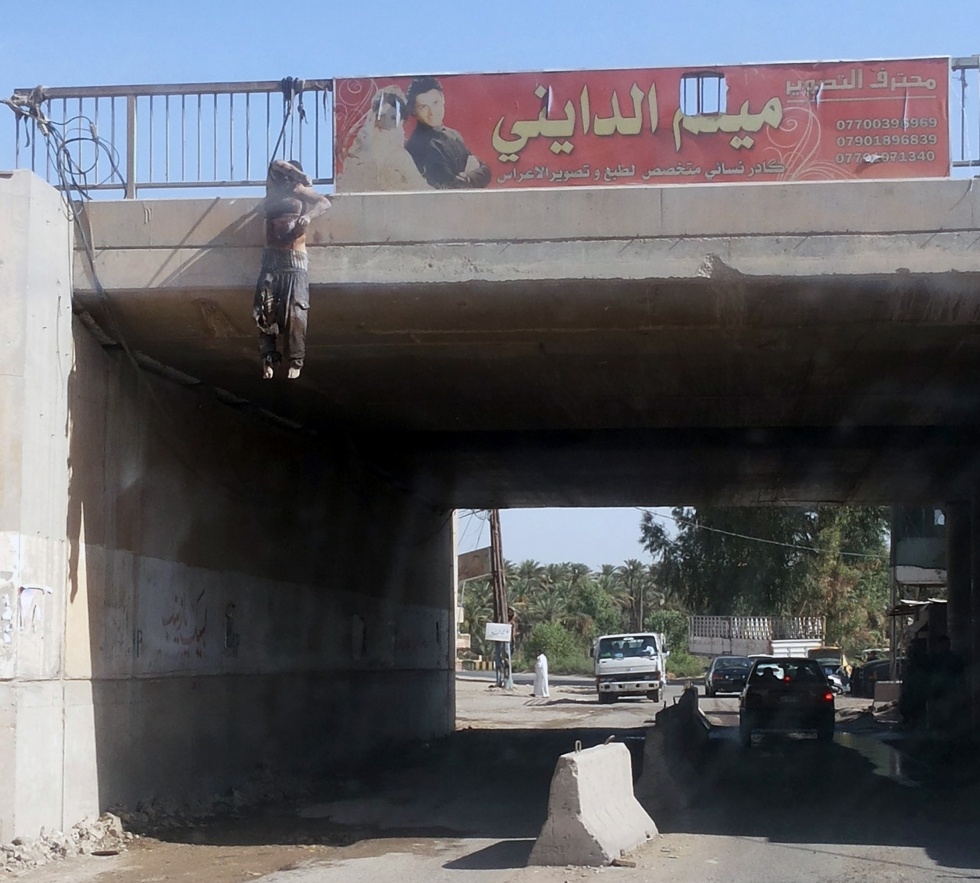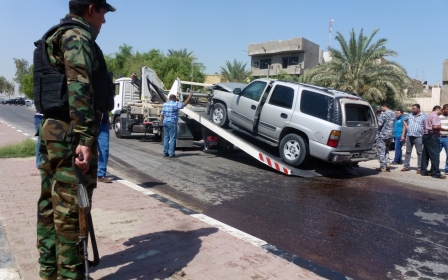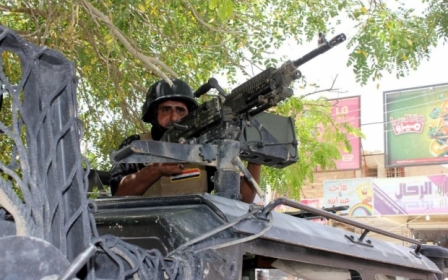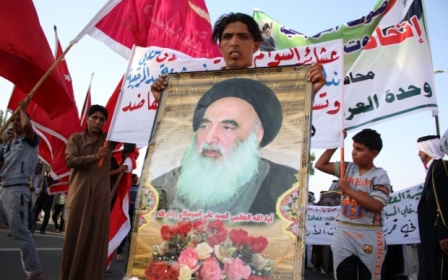Iraq Shiite militia display militant bodies in Baquba

Shiite militiamen in Iraq's city of Baquba dragged the bodies of Islamic State fighters through the streets Sunday and hung them from a bridge and a utility pole.
An AFP correspondent saw two bodies displayed in the centre of Baquba, a Shiite-dominated city barely 60 kilometres (40 miles) northeast of Baghdad, but security officials counted at least four.
The city is under the control of the Iraqi army and allied Shiite militiamen but is surrounded by many Sunni villages, which have been captured and recaptured several times in recent weeks.
"Several members of Daash were killed yesterday in a battle just north of Muqdadiyah," a nearby town, a police captain said, using the Islamic State's former Arabic acronym.
"Militiamen brought four bodies back and paraded through town in their cars, dragging the corpses behind them," he said. "Then they hung them in four different spots in Baquba."
A senior army officer gave a corroborating account.
Pictures obtained by AFP show one apparently headless body dangling from a utility post as a passer-by tops to snap a photo with his mobile phone.
Another, wearing the baggy sherwal trousers popular with foreign fighters, is seen hanging from a bridge, next to a banner advertising wedding photography, as traffic passes under.
Islamic State fighters and allied Sunni militants swept through large parts of Iraq's north and west seven weeks ago.
Government forces completely folded in the face on the onslaught and while they have since regrouped and received assistance, they have failed to regain any significant ground.
Militants control Fallujah, some 60 kilometres (40 miles) along the main road heading west out of Baghdad.
Holding Baquba lies on the easternmost of three roads converging on Baghdad from the north.
New MEE newsletter: Jerusalem Dispatch
Sign up to get the latest insights and analysis on Israel-Palestine, alongside Turkey Unpacked and other MEE newsletters
Middle East Eye delivers independent and unrivalled coverage and analysis of the Middle East, North Africa and beyond. To learn more about republishing this content and the associated fees, please fill out this form. More about MEE can be found here.




